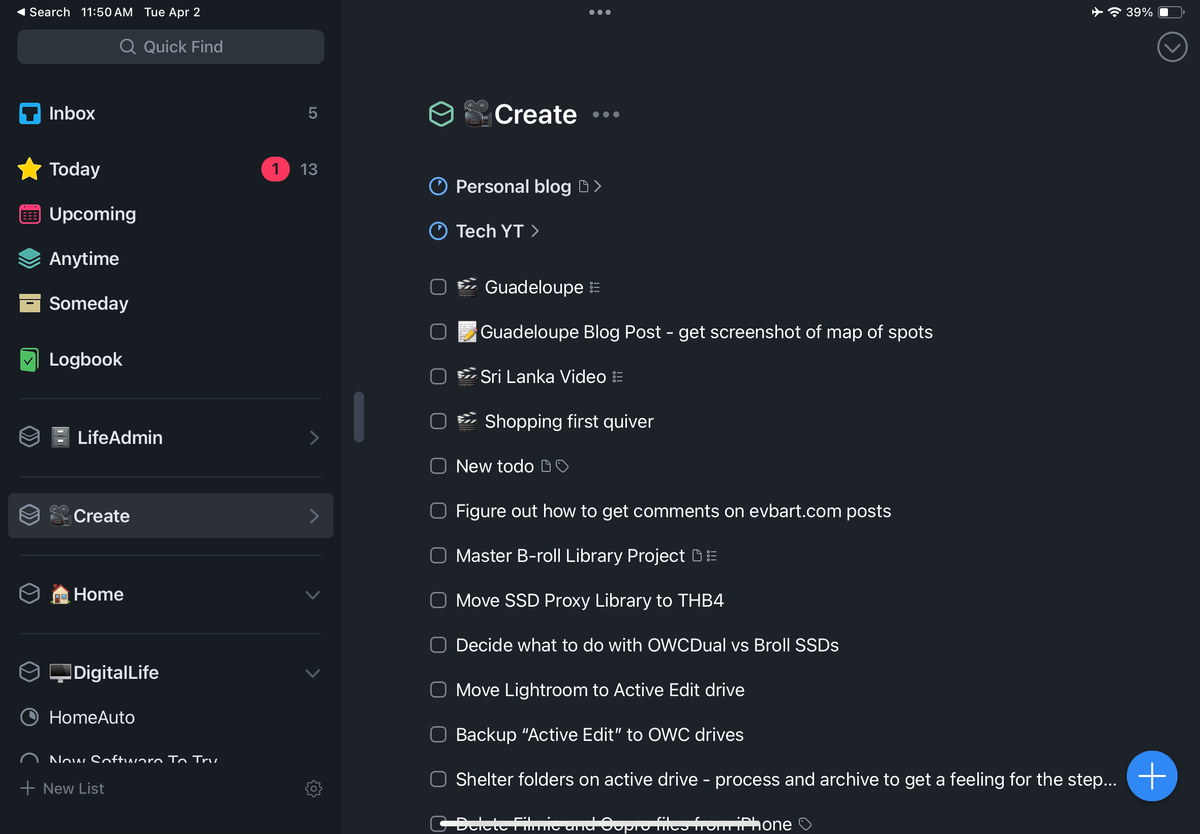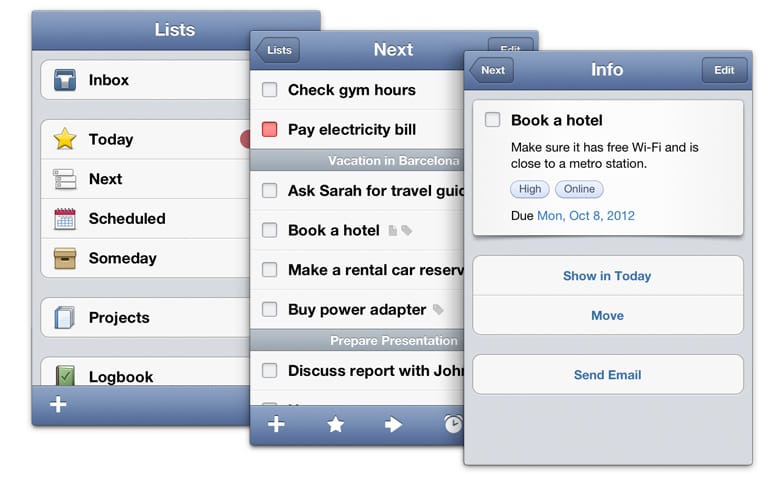You’re the Problem, not the task manager

I first read David Allen’s Getting Things Done in 2006 , and I was hooked. It was like a drug, armed with my mighty lists, I could do anything. I spent the next six years, fidgeting and toying with GTD systems, trying to perfectly capture everything in a task management tool.
Task Applications I tried:
- Remember the Milk
- 2Do
- TaskPaper
- Clear Lists
- Any.do
- Workflowy
- Omnifocus
- Listastic
- Trello
- Google Tasks
- Todoist
- Ticktick
- Noteplan
- Things (2013)
At that point, I realized GTD wasn’t for me. It’s a level of tracking that requires too much time, and honestly isn’t worth the effort. It’s the perfectionist approach to task management, and perfectionism is the enemy of good enough.
Fast forward, 10 years down the road, and I had tried every single task application out there. I would switch for the smallest shortcoming, honestly, I had a problem. Then I came across Cultured Code’s Things 2, and I fell in love. It was the simplest layout I’d ever seen, and the Today view really clicked with the way that my brain worked.

At this point, I wish I could say that I became insanely productive and stopped my task application obsession… but, no. I fidgeted with Things, and dabbled with other new task apps that popped up for another 5 years before really settling in and committing to Things 3.
So what’s the issue here? Well, it’s me. I am the issue. It’s user error.
I expected the task management tool to do all of the work, and I didn’t expect to actually do much work to use the task manager. Because I never stuck with any of the tools long enough for me to develop my systems, and for my habits to form in a way that would allow me to be productive… I just stalled getting things done, and spent way too much time playing with different productivity software.
Things you need to learn out before worrying about a task application:
- What types of tasks are you typically doing? Are the simple? Are the big projects?
- Do you do your tasks alone, or do you have a lot of dependencies on other people.
- What type of tasks do I do best at what time of day?
- Do I have a procrastination problem or a prioritization problem?
- Am I someone who’s going to look at a task manager each and every day? Am I going to look at the same time each day?
- Are your days predictable?
- Are your tasks easily schedulable? Can you give each task a date?
Conclusion
Ultimately, the software is only going to do so much for you, and the majority of the benefit is going to come from the habits you develop and the actions you take. If you keep changing systems, you’ll never work on these things. My recommendation is to try a few task applications, and pick the one that connects with your brain the most. Time box the exercise, and pick your favorite one after an hour of looking.
After that, commit to using it for a year or two. Commit to doing daily reviews to think about and learn about how your brain processes tasks. Do weekly reviews to understand your life and your work and what types of tasks tend to come up for you. Ultimately each person’s task system reflects their lives and their tasks, it’s very unique, which is why there is not a single system that works for everyone.